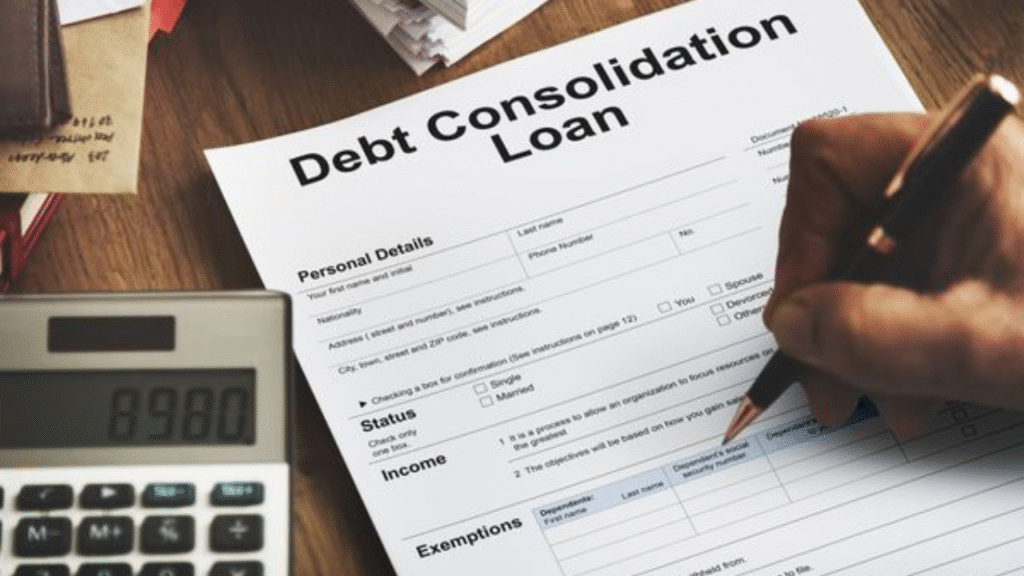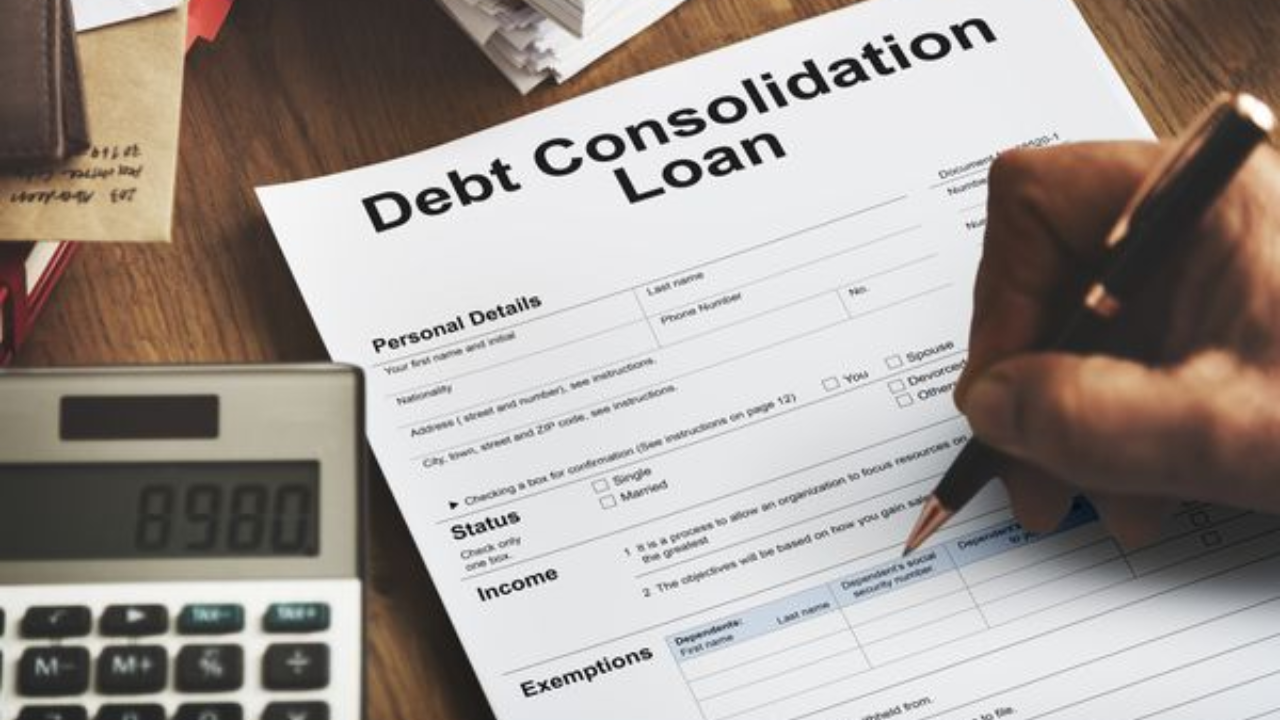
If your mailbox is overflowing with credit card bills and your paycheck barely stretches across all your payments, you’re not alone. Many borrowers struggle with juggling multiple debts—each with different due dates, interest rates, and balances. That’s where a debt consolidation loan can make a life-changing difference.
In this guide, we’ll break down how debt consolidation loans can lower your monthly payments, help you breathe easier, and possibly save you thousands of dollars over time.
What Is a Debt Consolidation Loan?
A debt consolidation loan is a personal loan you use to pay off multiple existing debts—such as credit card balances, personal loans, or medical bills. Instead of managing several payments each month, you now have just one fixed monthly payment with a potentially lower interest rate and longer repayment term.
This strategy not only simplifies your financial life but can also lower your total monthly debt obligation, especially if you secure better loan terms.
How It Works: The Mechanics of Lower Payments
Debt consolidation loans lower monthly payments in two major ways:
1. Lower Interest Rate
Credit card interest rates often hover between 18% to 29% APR. If you qualify for a debt consolidation loan with an interest rate between 6% and 15%, you could save significantly on interest charges.
Example:
If you owe $15,000 across multiple credit cards with an average 22% interest rate and consolidate with a loan at 10%, your monthly payment and total interest could drop dramatically.
2. Extended Loan Term
Debt consolidation loans typically offer terms ranging from 24 to 84 months. By spreading out the repayment period, your monthly payment becomes smaller—though you may pay more interest overall unless you pay it off early.
Example Comparison Table: Before and After Consolidation
| Criteria | Before Consolidation | After Consolidation Loan |
|---|---|---|
| Total Debt Amount | $15,000 across 3 credit cards | $15,000 personal loan |
| Average Interest Rate | 22% APR | 10% APR |
| Monthly Payments | ~$525 total | ~$320 |
| Loan Term | Revolving (indefinite) | Fixed 60 months |
| Payment Due Dates | 3 per month | 1 per month |
Key Benefits of Lower Monthly Payments Through Consolidation
1. Improved Cash Flow
Lower monthly payments mean more breathing room in your budget for essentials like rent, groceries, savings, or emergencies.
2. Reduced Stress
With only one payment to manage each month, you’re less likely to miss a due date and face late fees or penalties.
3. Debt-Free Timeline
Consolidation loans come with a set repayment term, helping you clearly see your debt-free date instead of staying stuck in a revolving cycle.
4. Potential Credit Score Boost
By paying off high credit card balances and lowering your credit utilization ratio, you may see a positive impact on your credit score over time.
5. Fixed Interest Rate
Unlike credit cards, consolidation loans usually come with a fixed APR, which means your payment won’t suddenly increase.
Factors That Affect Your Loan Terms
Before applying, it’s important to understand what will influence your new monthly payment:
| Factor | How It Affects Your Monthly Payment |
|---|---|
| Credit Score | Higher score = lower interest rate = lower monthly payment |
| Loan Amount | Larger loans usually mean higher monthly payments |
| Repayment Term Length | Longer terms = lower monthly payments |
| Lender Policies | Each lender has unique eligibility and rate criteria |
| Existing Debt Type | High-interest credit cards bring greater savings potential |
How to Apply for a Debt Consolidation Loan
- Check Your Credit Score
You’ll likely need a credit score of 670 or higher to qualify for the best rates, though some lenders accept lower scores. - List All Debts You Want to Consolidate
Include balances, minimum payments, and interest rates to determine how much to borrow. - Compare Lenders
Look for banks, credit unions, or online lenders offering competitive rates, low fees, and flexible terms. - Use a Loan Calculator
Estimate monthly payments based on amount, interest rate, and term length before applying. - Apply and Use the Loan to Pay Off Debts
Once approved, pay off all existing debts immediately and begin making payments on the new loan.
Overview Table: Debt Consolidation Loan Snapshot
| Feature | What You Should Know |
|---|---|
| Ideal For | Credit card and unsecured loan debt |
| Typical Loan Term | 2 to 7 years |
| Potential Interest Rates | 6% to 15% (with good credit) |
| Required Credit Score | 660+ (varies by lender) |
| Monthly Payment Impact | Can reduce payments by 20–40% |
| Risks | May pay more in total interest if term is long |
Important Considerations Before Consolidating
- Total Interest Paid: A lower monthly payment might mean more interest paid over time if the term is much longer.
- Origination Fees: Some lenders charge 1–8% upfront, which reduces your loan’s net amount.
- New Debt Risk: Consolidation clears your credit cards—but don’t run up new balances, or you’ll end up deeper in debt.
Final Thoughts
Debt consolidation loans can be a smart and effective strategy for lowering monthly payments and regaining control of your finances. With a lower interest rate and fixed repayment plan, you can simplify your budget, reduce financial stress, and make real progress toward a debt-free future.
Just be sure to compare lenders carefully, understand the full loan cost, and commit to better spending habits moving forward.
3 Best One-Line FAQs
Q: Can a debt consolidation loan really lower my monthly payment?
A: Yes—by reducing your interest rate or extending your repayment term.
Q: Will consolidating debt hurt my credit?
A: It may cause a small temporary dip, but can improve your score long-term.
Q: What’s the biggest risk of a debt consolidation loan?
A: Running up new debt on paid-off credit cards and ending up in worse financial shape.

